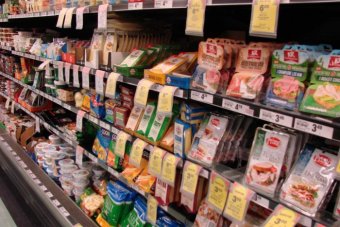Supermarket wars: Are they just a repeat of the battle between Qantas and Virgin?
Updated
Three decades ago when he was establishing his airline Virgin Atlantic, Sir Richard Branson made a comment which was profound and timeless.
Virgin Atlantic was taking on the might of British Airways (BA) on the lucrative London to New York route and Sir Richard had watched as Freddie Laker's Sky Train collapsed a few years earlier, unable to take the heat from BA.
What Sir Richard said was, "whatever ticket price we charge at Virgin Atlantic I know British Airways will match it. We have to give passengers a reason other than price to fly with Virgin."
So Virgin Atlantic set about creating an airline with a vibrancy about it that focused on passenger experience.
Thirty years on, and despite being a minnow, Virgin Atlantic is still flying and it's BA which is struggling.
But what, I hear you say, has this got to do with supermarkets?
A lot actually.
Overall, airline seats are commodities. Flying from Brisbane to Perth with Qantas is pretty much the same as flying with Virgin.
With supermarkets, the food you buy in Coles is pretty much the same as the food you buy in Woolworths.
So if your strategy is based on "down, down, down" like Coles, or "cheap, cheap, cheap" as in Woolies, it becomes a race to the bottom.
Let's take baked beans. They're the same in both stores so I'll shop at the one which is selling them cheaper.
Price will solely dictate customer behaviour.
Which is great for customers, but if you're a shareholder of Woolworths or Wesfarmers — which owns Coles — it's not so good.
Market share is one thing, but if profit margin is being eroded you're relying on large volumes to maintain or grow earnings.
And again the airline industry is instructive.
In 2011, Qantas and Virgin were locked in a battle over market share as upstart Virgin tried to grab as much as it could from the Flying Kangaroo.
It prompted Qantas to declare that 65 per cent market share was the "line in the sand" over which it would not cross.
Both airlines added capacity and discounted fares to ridiculously low levels, flying many routes at a loss.
Not surprisingly profits were smashed before saner heads prevailed and a truce of sorts was called.
Further lowering prices
Back in supermarkets, where sales growth at the awakening Woolworths has overtaken Coles for the first time in a long time, all the talk coming out of both companies is about further lowering prices.
For example, Coles managing director John Durkan said last week, "we're not changing. Australian consumers have never had it so good".
You expect people to shop at Aldi just because it's cheap, but Woolworths and Coles have a lot more to offer.
And if you're a regular Coles shopper, do you really make comparisons every week with Woolworths prices and vice versa?
Big shareholders are cheering now as Coles and Woolies "invest in prices," as they euphemistically call price cutting.
Given that it's profits that determine dividends though, one wonders how long that will last.
In their most recent results Woolworths' pre-tax earnings were down 14 per cent; Coles was off 3 per cent.
Coles and Woolworths still have 70 per cent of Australia's $90 billion supermarket pie, yet their earnings don't reflect that oligopolistic position (unlike the big four banks).
If Richard Branson was a shopkeeper he may have been tempted to say, "whatever I charge at my supermarket I know the other supermarket will match it. We have to give people a reason other than price to shop with us".
Like doing something different.
Great service and a wonderful customer experience would be a good place to start.
Topics: business-economics-and-finance, company-news, consumer-finance, consumer-protection, food-and-beverage, australia
First posted








